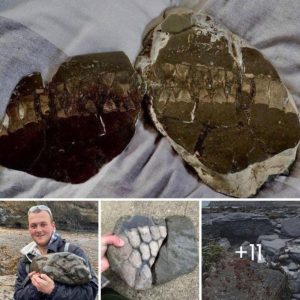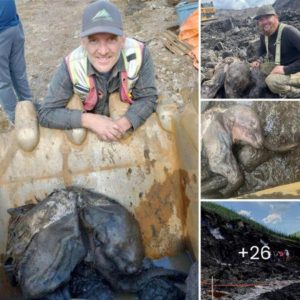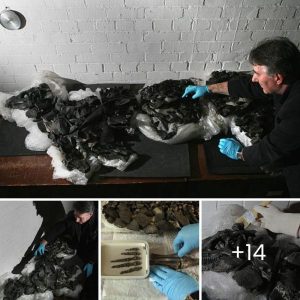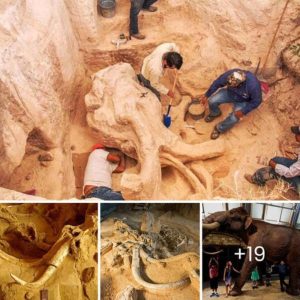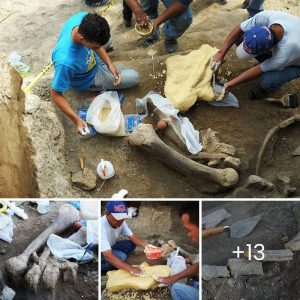In the ancient Faliron Delta region of southern Athens, a startling discovery has emerged—two mass graves containing 80 ancient bodies dating back to the 7th century BC.
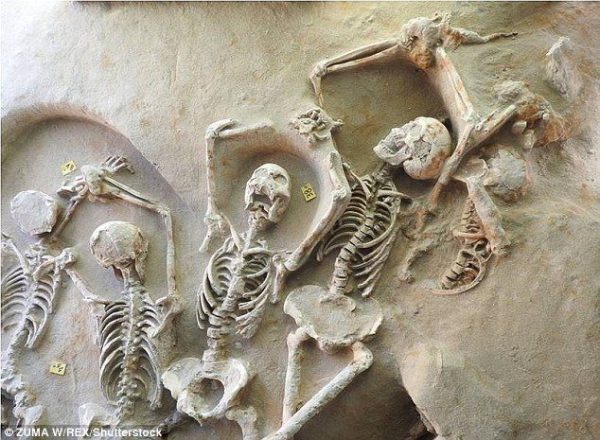
These skeletal remains, belonging to young men, were found with a peculiar arrangement—lying side by side with their arms shackled above their heads. Chief archaeologist Stella Chrysoulaki presented the findings, unveiling a mystery that has captivated researchers and historians alike.
The graves, unearthed during preparations for the Stavros Niarchos Foundation Cultural Center (SNFCC), have sparked intense interest due to the unusual positioning of the skeletons.
The young men, seemingly prisoners, had their arms bound above their heads, a puzzling detail that distinguishes this discovery. One of the skeletons even bore the grisly evidence of an arrow embedded in its shoulder, hinting at the possibility of a violent end for these captives.
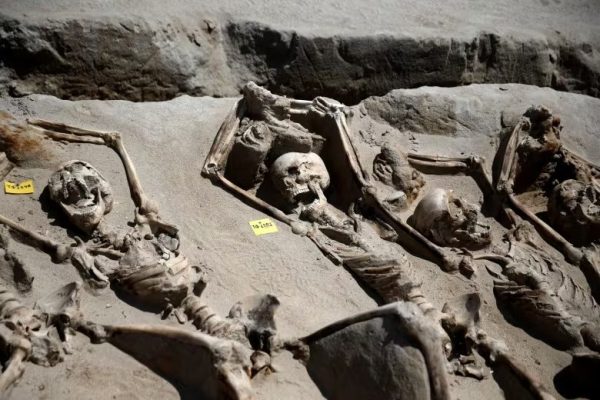
Archaeologists, equipped with clues from two small vases found among the skeletons, dated the graves between 650-625 BC—a period marked by significant political turmoil in the region.
The skeletons were meticulously arranged, some lying on their backs and others on their stomachs. Strikingly, 36 of them had their hands bound with iron, while one, the last to be discovered in March, had both his hands and legs tied with rope.
The teeth of these individuals, remarkably well-preserved, indicated their youth and overall health. This observation has given rise to a compelling theory—that these men may have been followers of Cylon, a nobleman whose failed coup in the 7th century BC is chronicled in the works of ancient historians Herodotus and Thucydides.
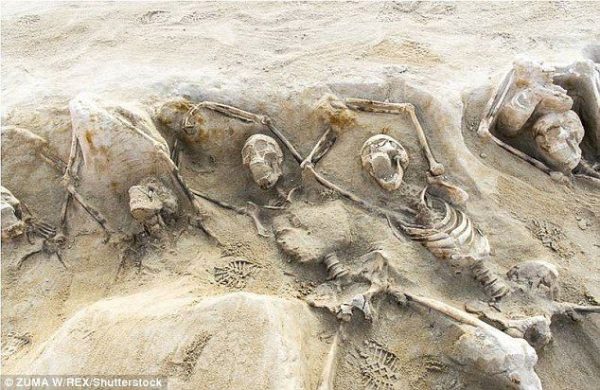
Cylon, a former Olympic champion turned aspiring tyrant, sought to rule Athens. However, Athenians vehemently opposed his coup, forcing him and his supporters to seek refuge in the Acropolis—the iconic citadel that now stands as a symbol of the Greek capital.
Surrendering under assurances of spared lives, Cylon and his followers were betrayed. Megacles, from the powerful Alcmaeonid clan, ordered the massacre of the conspirators—an act condemned as sacrilegious by the city authorities.
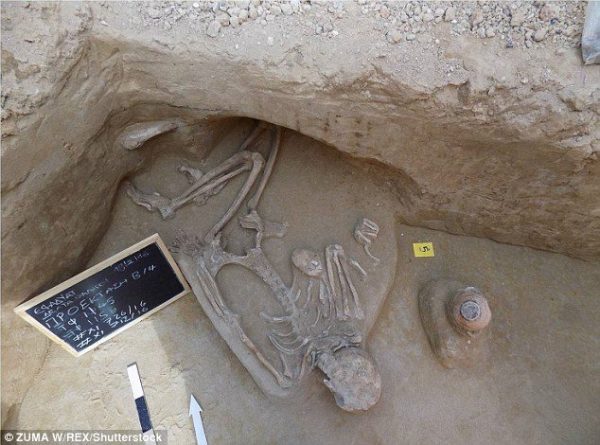
As the investigations into these mass graves continue, the ancient bones bear witness to a tumultuous period in Athens, raising questions about the identities, fates, and untold stories of the 80 men whose remains lay shackled beneath the soil for over two millennia.

